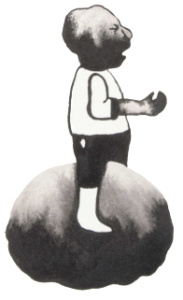Russian Businessman Accused
![]()
In September and October of 1999 The Times published two articles concerning the Russian businessman Grigori Loutchansky. He and his company Nordex were accused of being associated with the Russian mafia and being active in large-scale money-laundering and the smuggling of nuclear weapons.
In December 1999 Loutchansky brought proceedings for libel against The Times. While this action was underway, the articles remained accessible to Internet users on the newspapers’ website as part of the archive of past issues. In December 2000 Loutchansky brought a second action for libel in relation to the continuing Internet publication of the articles.
The Times did not dispute that the publications were potentially defamatory and did not seek to prove that the allegations were true. It relied on the absolute defence of ‘qualified privilege’, contending that the allegations were of such a kind and seriousness that the newspaper had a duty to publish the information and the public had a corresponding need to know.
This defence was unsuccessful.
Internet publication rule
In the UK as regards defamation actions a limitation period of one year exists as of the date on which the cause of action accrued. The Times argued that since Loutchansky brought his second action over a year after the initial publication of the articles, this action was time-barred. Crucial for this defence is the answer to the question of when the limitation period starts. Is this as of the dates the articles were printed in the newspaper and were first uploaded onto the website, or does the period start anew every time the articles are accessed on the internet?
In the case Duke of Brunswick v Harmer of 1849 the court held that the delivery of a copy of the newspaper to the Duke’s agent seventeen years after its publication constituted a separate publication in respect of which suit could be brought. In 1941 the New York Court of Appeal concluded that the rule was formulated “in an era which long antedated the modern process of mass publication” and was not suited to modern conditions any longer. The US courts have chosen to apply the ‘single publication rule’, the limitation period starting as of the date of the first publication.
However, the UK courts have stayed true to Duke of Brunswick v Harmer and apply the ‘Internet publication rule’, meaning that a new cause of action accrues every time the publication is accessed. Consequently, the court rejected the defence of The Times that the second action was time-barred.
Freedom of Expression and the Importance of Online Archives
The Times then filed a complaint against the United Kingdom with the European Court of Human Rights concerning the ‘Internet publication rule’. It argued that the rule breaches Article 10 ECHR containing the right to freedom of expression, since the result is that newspapers that maintain Internet archives are exposed to ceaseless liability for re-publication of the defamatory material. The Times pointed out that the rule inevitably has a chilling effect on the willingness of newspapers to provide Internet archives and thus limits their freedom of expression.
Unlike the UK Court of Appeal that considered the maintenance of archives ‘a comparatively insignificant aspect of freedom of expression’, the European Court of Human Rights agrees with The Times that Internet archives make a substantial contribution to preserving and making available news and information. While the primary function of the press in a democracy is to act as a “public watchdog”, the Court considers that the press has a valuable secondary role in maintaining and making available to the public archives containing news which has previously been reported.
Unfortunately for The Times the Court does not give decision of principle on the Internet publication rule. The Court finds that The Times was not prejudiced in its defence due to the passage of time and no problems linked to ceaseless liability had arisen. However, some comfort may be found in the Court’s statement that libel proceedings brought against a newspaper after a significant lapse of time may well give rise to a disproportionate interference with press freedom under Article 10.
This consideration is interesting for the Dutch practice, since there is no special limitation period for defamation cases. In general the limitation period for claiming damages is five years. However, it could be that before these five years have passed the lapse of time is yet significant enough ‘to give rise to a disproportionate interference with press freedom under Article 10’.
Adding qualification “subject to litigation”
Lastly, the UK Courts expected The Times, as of the start of the proceedings, to add a qualification to both articles in the Internet archive that these were subject to litigation. The Times complained about this obligation, but the European Court of Human Rights does not consider the requirement excessive and concludes that it does not constitute a disproportionate interference with the right to freedom of expression.

